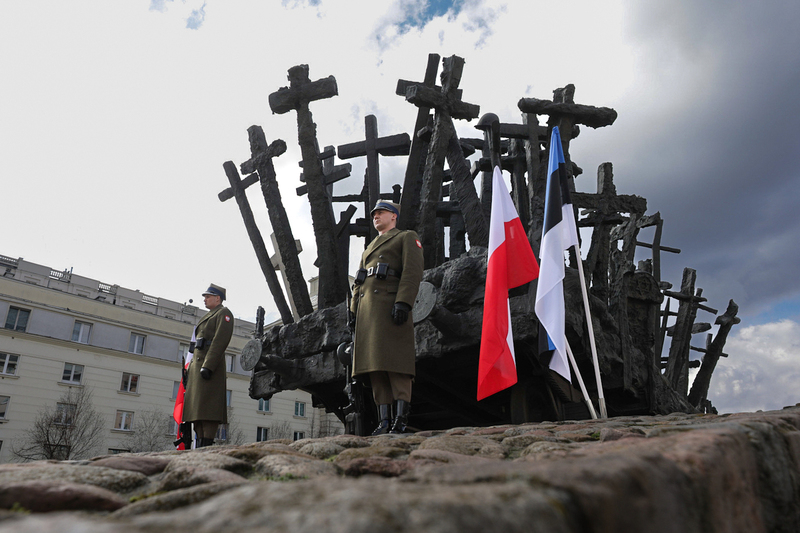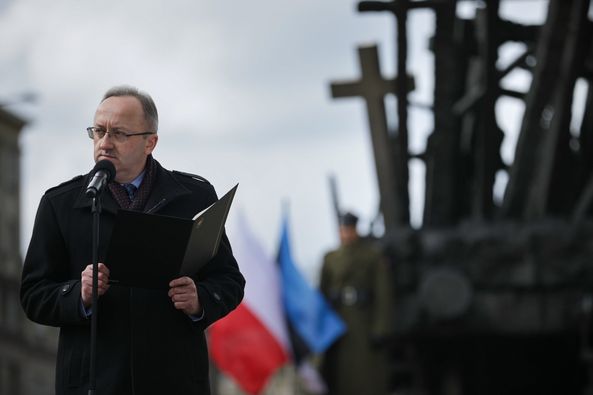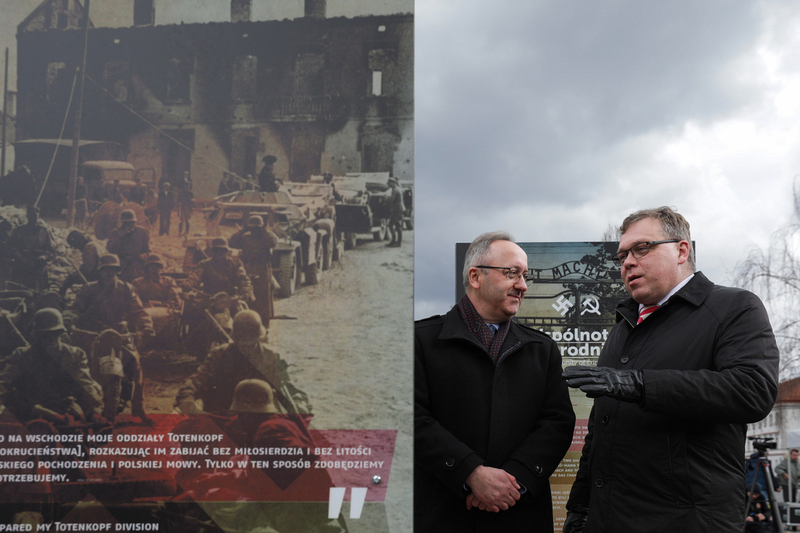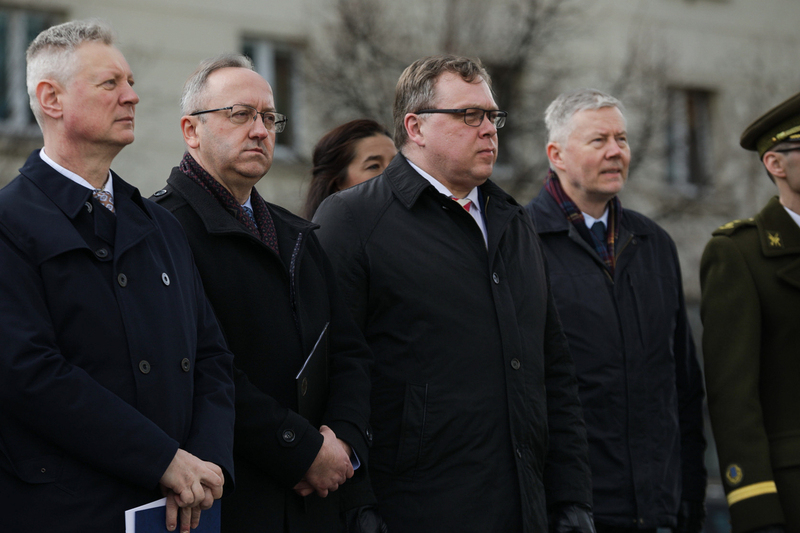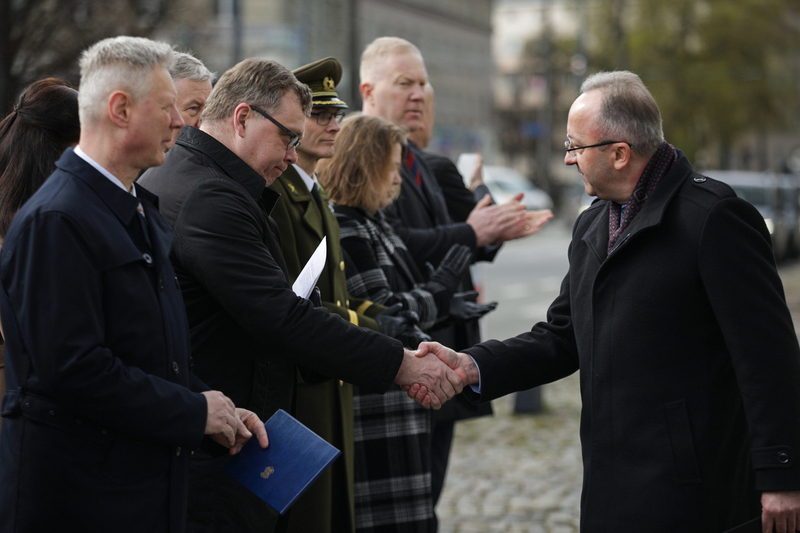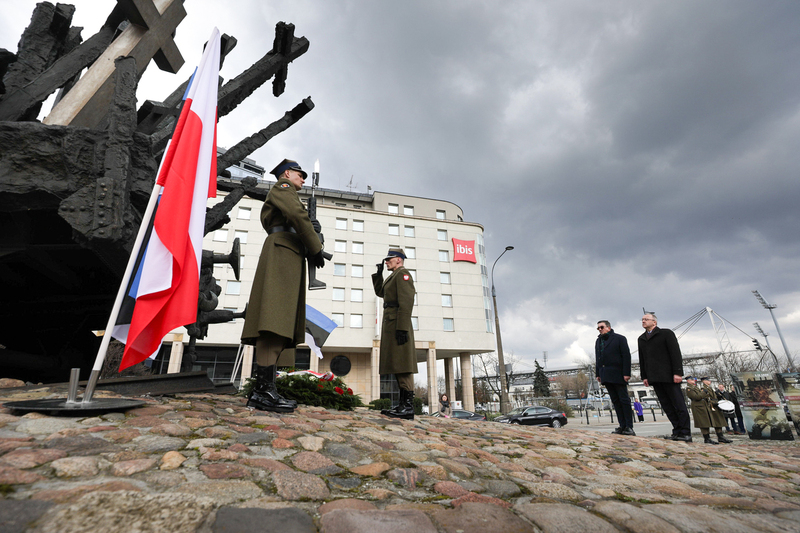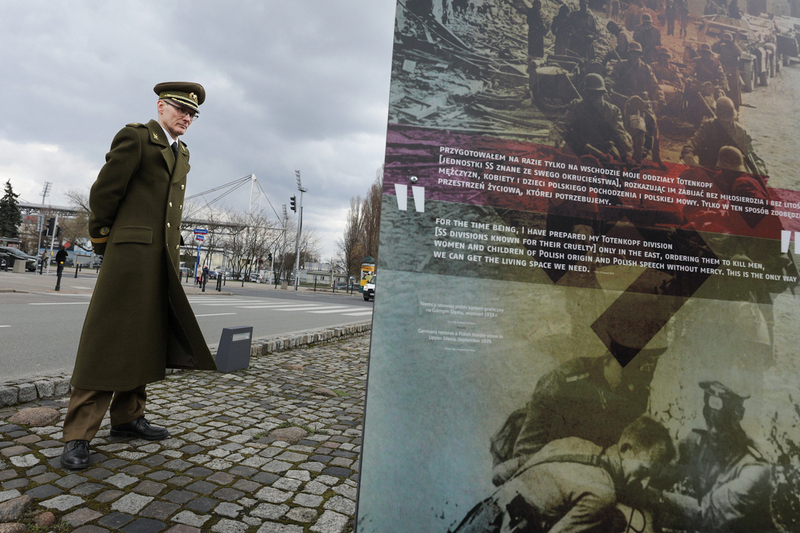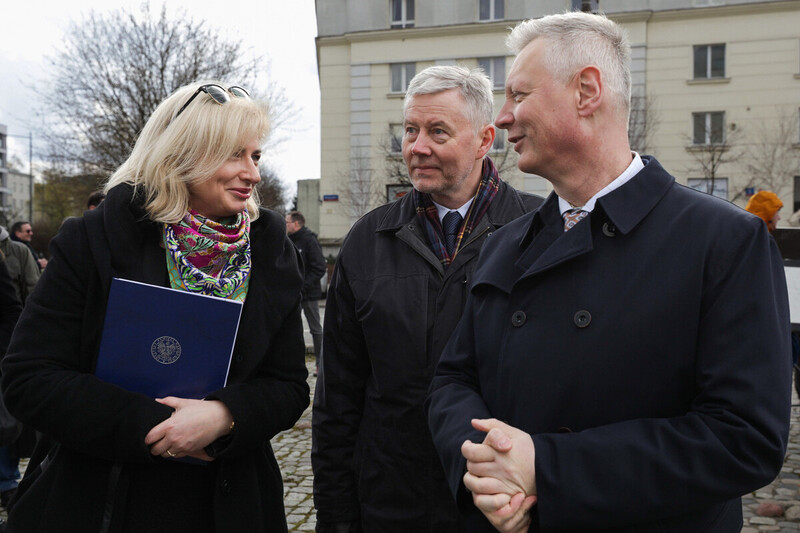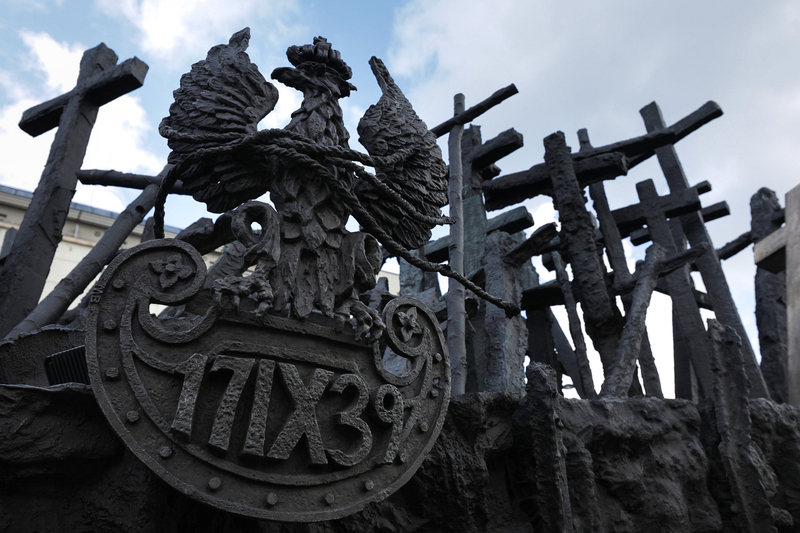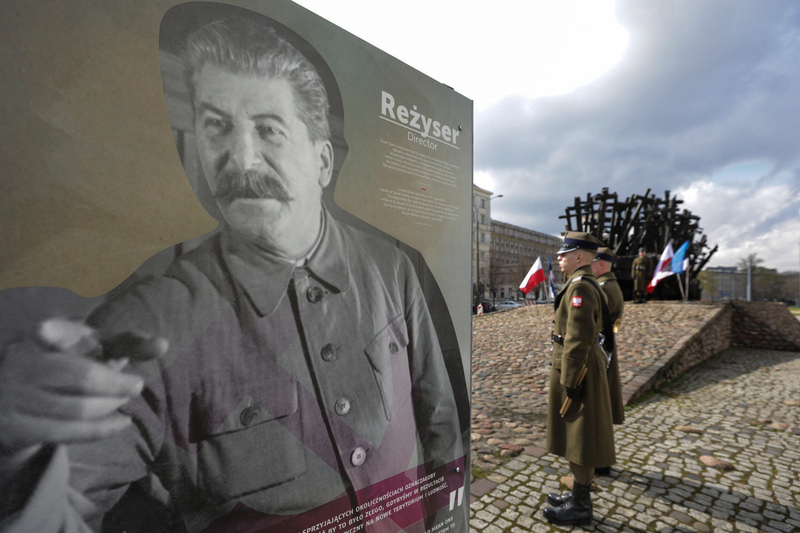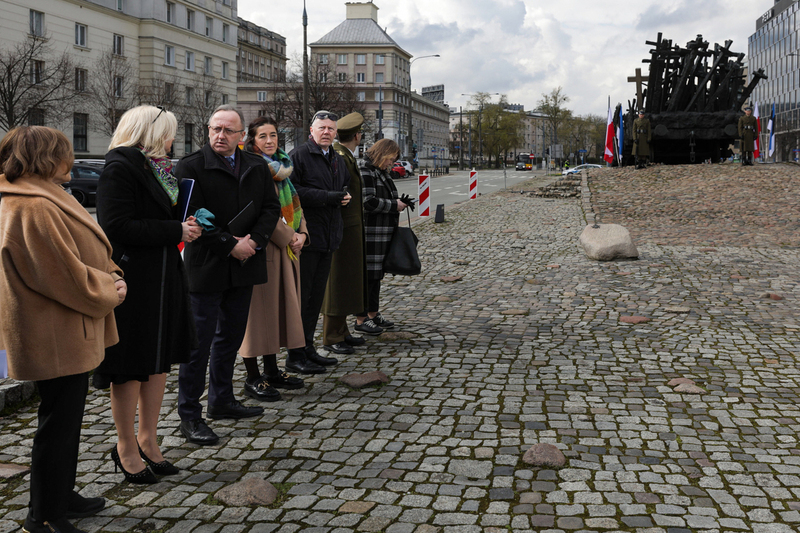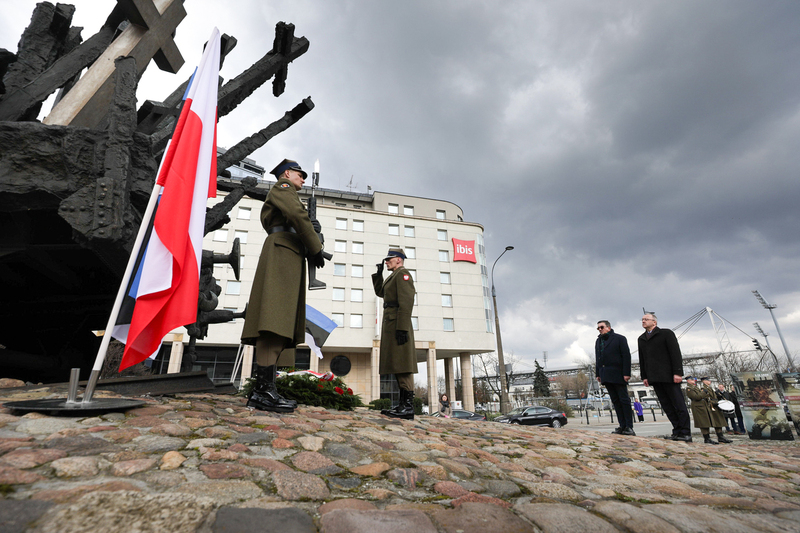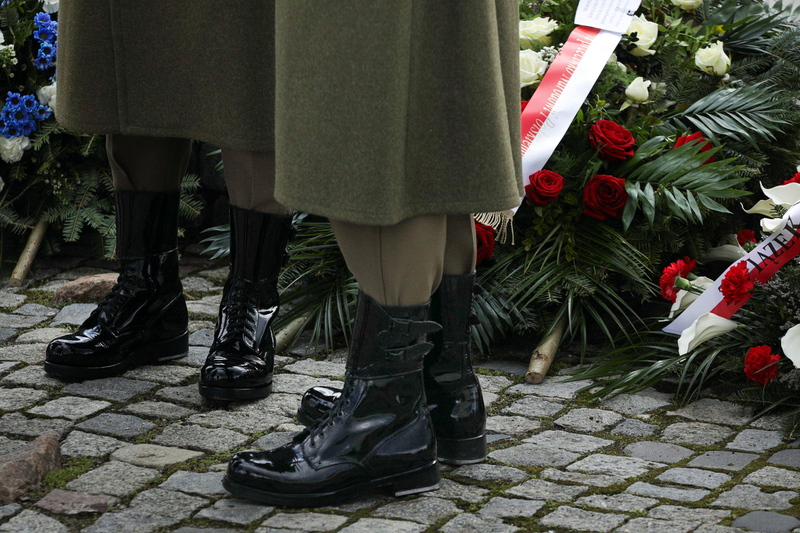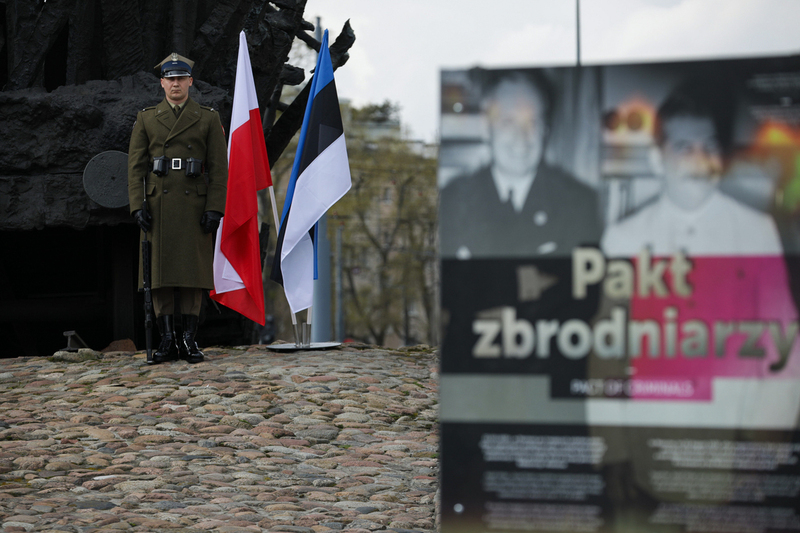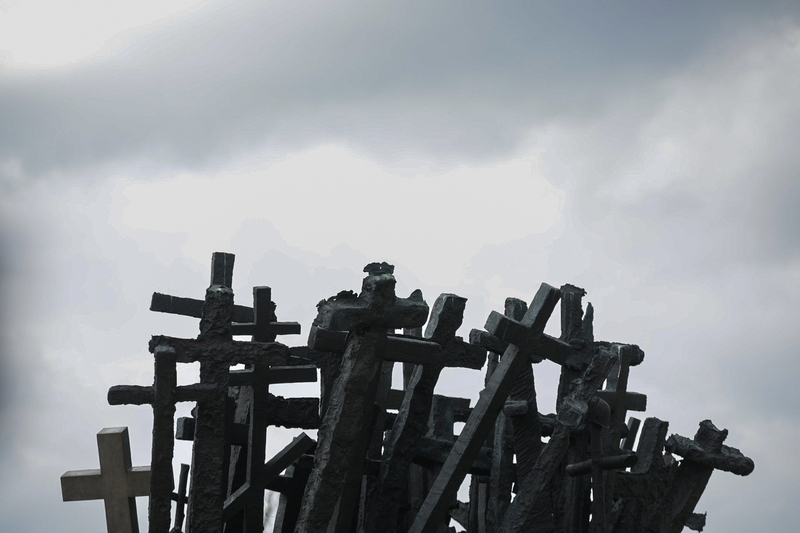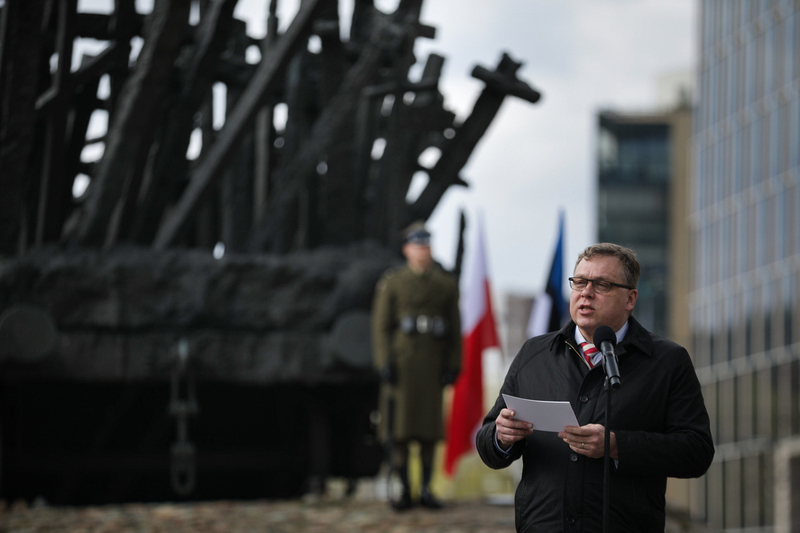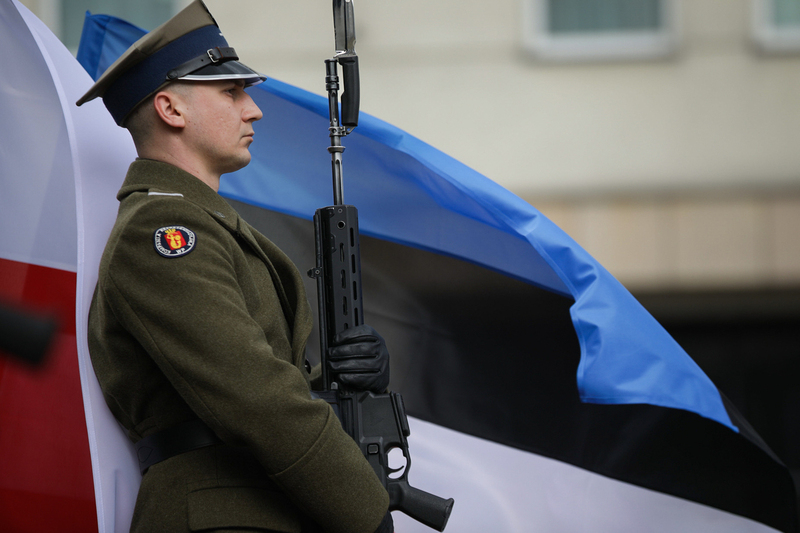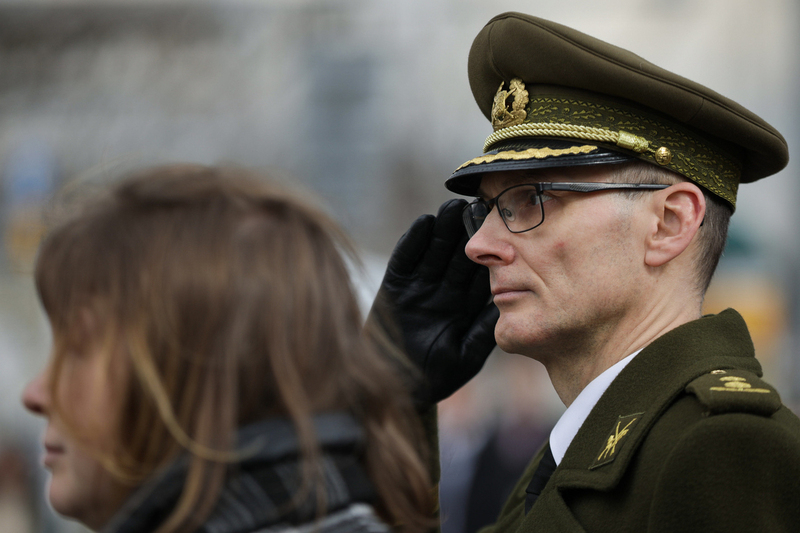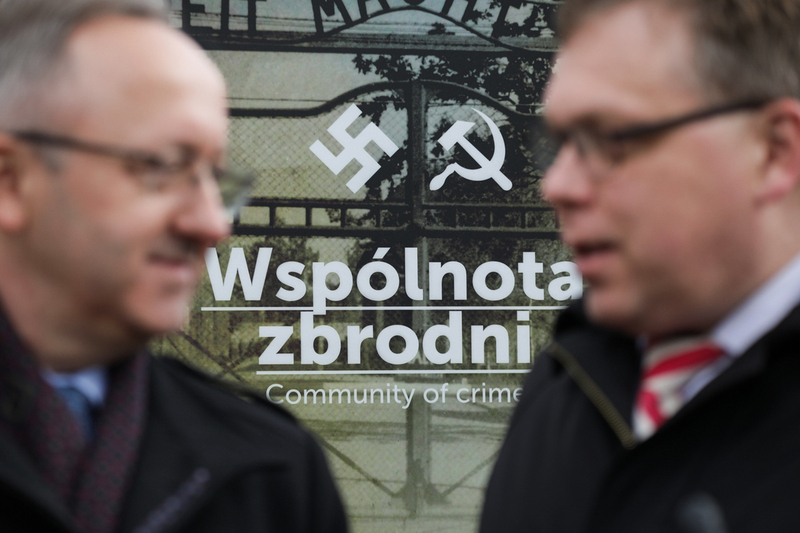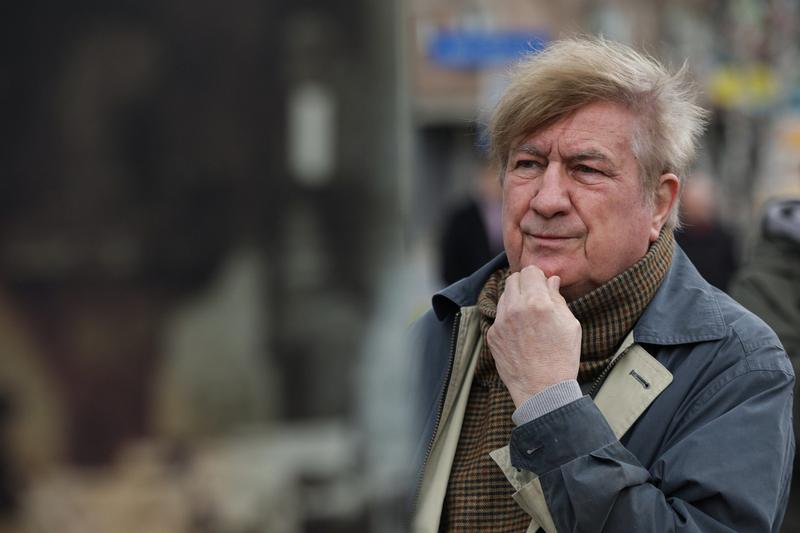On the 75th anniversary of mass deportations of people from the Baltic republics to the Soviet labour camps, the victims of the Operation “Priboi” were commemorated at Warsaw’s Monument to the Fallen and Murdered in the East. The event was attended by the IPN Deputy President Prof. Karol Polejowski, and Estonian representatives: the President of the Estonian Parliament Lauri Hussar and the Ambassador of Estonia to Poland, His Excellency Miko Haljas. An Honor Guard unit of the Polish Armed Forces was also present at the ceremony. Additionally selected panels from the IPN’s exhibition “The Pact of Criminals”, concerning the 1939 Molotov–Ribbentrop Pact were displayed.
The 1949 mass deportations of people from the Baltic states to the Soviet GULAG labour camps (GULAG (ГУЛАГ) stands for "Гла́вное управле́ние исправи́тельно-трудовы́х лагере́й" [Main Directorate of Correctional Labour Camps], or inhospitable areas deep in the USSR, were aimed at breaking the resistance of those Latvians, Lithuanians and Estonians who were labelled by the Soviets as the “enemies of the people”, only because they opposed the idea of their countries joining the USSR as Baltic republics. More than 90,000 of them were targeted during the deportations named Operation “Priboi” carried out between 25 and 28 March 1949. Most of them never came back. The forced deportations also served to eliminate the support base for the local anti-communist partisans, the so-called “Forest Brothers” and to facilitate collectivization.
Only after Stalin's death some of the victims were allowed to return home. Among the exiles, there were also numerous Poles. They were all relocated to the regions of Novosibirsk, Omsk, Irkutsk, and Krasnoyarsk Krai. As a consequence of the operation, individual agriculture ceased to exist, and the independence movement weakened.
The European Court of Human Rights has declared the deportations a crime against humanity. On the anniversary of the events, thousands of Estonians light candles to commemorate those deported to labour camps and murdered in Siberia.
We are meeting here today on the 75th anniversary of the terrible "March deportation" that began in the Baltic republics on the night of 25-26 March 1949. From Estonia alone, over 20,000 people were deported to Siberia, most of them women and children. Similar deportations to the East "under the second Soviet occupation" also affected Poles: both those who stayed beyond the Bug River, in the lands incorporated into the USSR, and those in post-Yalta Poland, also enslaved by the communists, said the IPN Deputy President Prof. Karol Polejowski, during the ceremony.
During his speech, the IPN Deputy Head also commented on the Russian authority's attitudes towards the “historical memory” of states like Poland and Estonia.
Poles and Estonians have been able to enjoy the long-awaited freedom. Today, we can make sovereign decisions and, for example, who we want to erect monuments to. The authorities of the Russian Federation apparently cannot come to terms with this. Not so long ago, a list of people wanted by the Soviet Ministry of the Interior went viral. It included the Prime Minister of Estonia, Kaja Kallas, and my superior – the President of the IPN Karol Nawrocki, Ph.D. They are accused of the profanation of historical memory, added Prof. Karol Polejowski.
A leaflet in a PDF format entitled “Pact of Criminals – The Toast to Hitler Which Changed the World”, authored by the IPN President Karol Nawrocki is available to download in various languages at https://bit.ly/3cKFses. The exhibition was presented in Vilnius in March 2023.
Bearing in mind Poland's common experience with Estonia in the field of decommunization of public space we present a film prepared by the IPN's Office of International Cooperation entitled "Decommunization of Public Space" overturning the false narrative about the decommunization activities of the Institute of National Remembrance. The material briefly presents the purpose and nature of the IPN campaign, and emphasizes that by removing communist propaganda objects from public space, the IPN is fulfilling a task arising directly from the provisions of Polish law prohibiting the propagation of totalitarian ideologies and systems. The IPN President Karol Nawrocki, Ph.D. has repeatedly stressed the need to cleanse public space of Soviet symbols and other relics of the communist totalitarian system not only in Poland, but also in all former Eastern Bloc countries.
